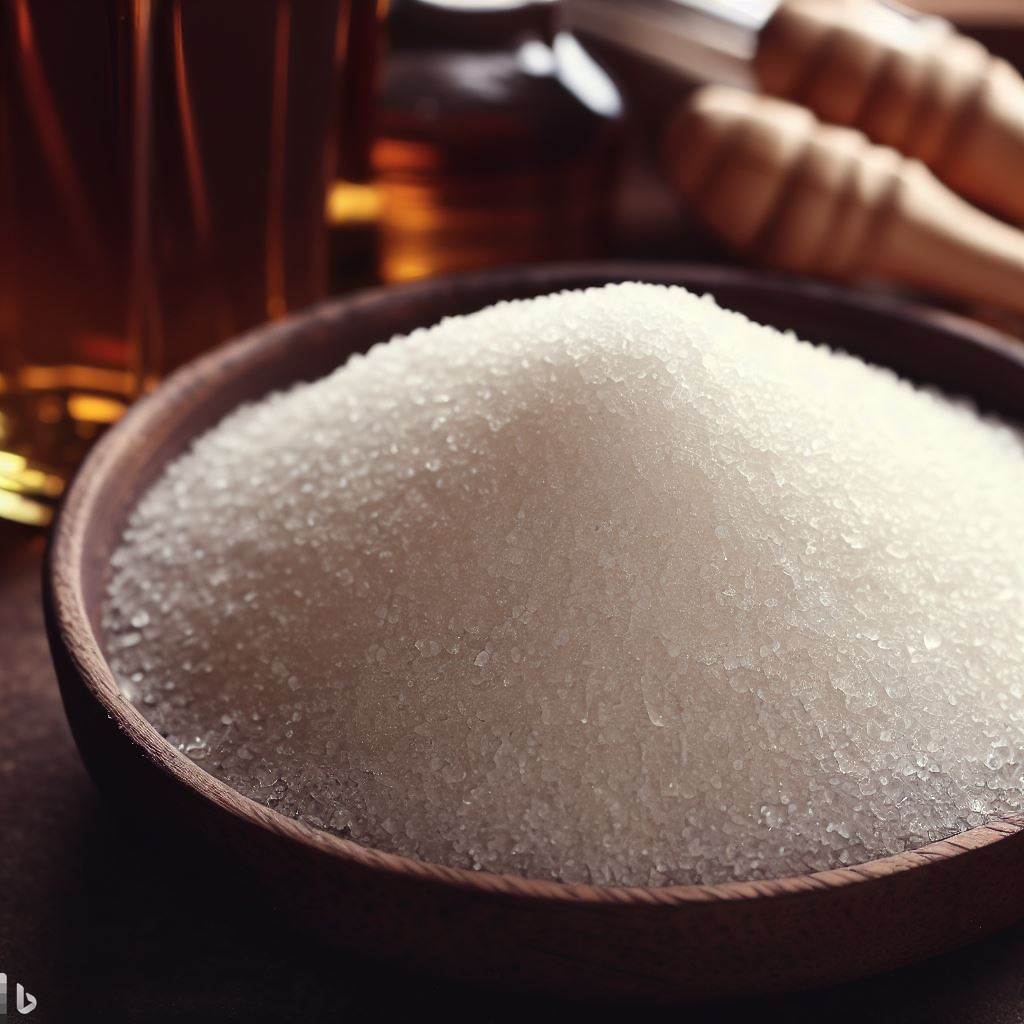Definition of Kombucha
Kombucha is a fermented tea beverage that has gained intrest in recent years due to its potential health benefits and unique taste. It is made by fermenting sweetened tea with a symbiotic culture of bacteria and yeast (SCOBY), resulting in a tangy and slightly effervescent drink. We know Kombucha is healthy but is Kombucha high in Polyphenols?
Exploring the Polyphenol Content in Kombucha: Benefits and Beyond
Polyphenols are a group of naturally occurring compounds found in various plant-based foods and beverages. They are known for their antioxidant properties and have been associated with numerous health benefits, including reduced risk of chronic diseases such as heart disease, certain cancers, and neurodegenerative disorders.
In this blog post, we will explore the polyphenol content in kombucha and its potential health benefits. We will delve into the science behind polyphenols, discuss the nutritional profile of kombucha, and examine the existing research on the polyphenol levels in kombucha. Finally, we will provide insights on how to incorporate kombucha into a balanced diet.
What are Polyphenols?

Polyphenols are a diverse group of chemical compounds characterized by their multiple phenol rings. They are classified into several subclasses, including flavonoids (such as flavonols, flavanols, and flavones), phenolic acids, stilbenes, and lignans. Each subclass has its unique structure and health benefits.
Health Benefits of Polyphenols
Polyphenols have been extensively studied for their potential health benefits. Here are some of the key advantages associated with these compounds:
- Antioxidant Properties: Polyphenols are powerful antioxidants that help combat oxidative stress in the body. They neutralize harmful free radicals, protecting cells from damage and reducing the risk of chronic diseases.
- Anti-Inflammatory Effects: Many polyphenols possess anti-inflammatory properties, which can help alleviate inflammation in the body. Chronic inflammation is linked to various health conditions, including heart disease, diabetes, and certain cancers.
- Cardiovascular Health: Polyphenols have shown promising effects on cardiovascular health. They can help improve blood vessel function, reduce blood pressure, lower LDL (bad) cholesterol levels, and inhibit the oxidation of LDL cholesterol, which is a critical step in the development of atherosclerosis.
- Cognitive Function: Some polyphenols, particularly flavonoids, have been associated with improved cognitive function and a reduced risk of neurodegenerative diseases like Alzheimer’s and Parkinson’s. They may help protect brain cells from damage and improve memory and learning abilities.
Sources of Polyphenols in the Diet
Polyphenols are widely distributed in various plant-based foods and beverages. Some of the richest dietary sources of polyphenols include:
- Fruits: Berries (such as blueberries, strawberries, and raspberries), citrus fruits, apples, grapes, and pomegranates.
- Vegetables: Spinach, kale, broccoli, onions, and artichokes.
- Legumes: Black beans, lentils, and chickpeas.
- Nuts and Seeds: Walnuts, almonds, flaxseeds, and chia seeds.
- Whole Grains: Oats, quinoa, and whole wheat.
- Herbs and Spices: Turmeric, cinnamon, ginger, and green tea.
It’s worth noting that the polyphenol content can vary depending on factors like the specific variety of the plant, its ripeness, and the preparation or processing methods.
Understanding Kombucha
Kombucha is a fermented tea beverage that originated in ancient China over 2,000 years ago. It is made by fermenting sweetened tea with the help of a symbiotic culture of bacteria and yeast (SCOBY). The SCOBY consumes the sugar in the tea, producing a range of organic acids, vitamins, enzymes, and other beneficial compounds.
How is Kombucha Made?

The process of making kombucha involves several steps:
- Brewing the Tea: Kombucha is traditionally made with black or green tea, although other types of tea can also be used. The tea leaves are steeped in hot water, and sugar is added to provide a food source for the SCOBY.
- Adding the SCOBY: Once the tea has cooled, a SCOBY is added to the mixture. The SCOBY floats on the surface and initiates the fermentation process.
- Fermentation: The fermentation process typically takes around 7 to 14 days. During this time, the SCOBY metabolizes the sugar, converting it into various compounds. This process produces carbon dioxide, which gives kombucha its characteristic effervescence.
- Flavoring and Bottling: After the fermentation period, the kombucha can be flavored
Flavoring and Bottling:
After the fermentation period, the kombucha can be flavored with additional ingredients such as fruits, herbs, or spices to enhance its taste. Common flavor options include ginger, berries, citrus, and mint. The flavored kombucha is then bottled and sealed to allow for further carbonation.
Nutritional Profile of Kombucha:
Kombucha is a low-calorie beverage that offers a range of nutrients and bioactive compounds. The exact nutritional composition can vary depending on factors like the tea used, fermentation time, and added flavors. However, a typical serving of kombucha (approximately 8 ounces) may contain:
- Calories: 30-50 calories
- Carbohydrates: 7-10 grams
- Sugar: 2-4 grams
- B vitamins (such as B1, B2, B6, and B12)
- Organic acids (including acetic acid, lactic acid, and gluconic acid)
- Enzymes
- Polyphenols
It’s important to note that the nutritional content can vary between brands and homemade brews. Additionally, flavored kombucha may contain additional sugars or additives, so it’s advisable to check the label for specific details.
Polyphenol Content in Tea:
The primary source of polyphenols in kombucha is the tea used during the brewing process. Both black and green tea contain a wide array of polyphenols, including flavonoids like catechins, epicatechins, and flavonols. These polyphenols contribute to the antioxidant and anti-inflammatory properties of both tea and kombucha.
The Fermentation Process and Polyphenols:
During kombucha fermentation, the SCOBY metabolizes the tea’s polyphenols, resulting in changes in their composition and concentration. The fermentation process can lead to the breakdown of larger polyphenols into smaller, more bioavailable compounds. This transformation may enhance the absorption and bioactivity of the polyphenols in kombucha.
Studies on Polyphenol Levels in Kombucha:

Several studies have examined the polyphenol content of kombucha and compared it to other beverages. While the results vary, research generally indicates that kombucha does contain polyphenols, albeit in varying concentrations.
- Comparison to Other Beverages:
A study published in the “Journal of Agricultural and Food Chemistry” compared the polyphenol levels in various beverages, including kombucha, black tea, green tea, and coffee. The findings showed that kombucha had higher total polyphenol content than black tea and coffee, but slightly lower than green tea.
- Effects of Brewing Time and Conditions:
Another study published in the “International Journal of Food Sciences and Nutrition” investigated the impact of brewing time and temperature on the polyphenol content of kombucha. The results suggested that longer fermentation periods and higher temperatures increased the polyphenol levels in kombucha.
It’s worth mentioning that the exact polyphenol content of kombucha can be influenced by factors such as the type of tea, fermentation conditions, and the specific brewing method used.
Health Benefits of Kombucha’s Polyphenols
The polyphenols present in kombucha contribute to its potential health benefits. Although research on kombucha specifically is limited, many of the benefits associated with polyphenols in general may apply to kombucha as well. Here are some potential advantages:
Antioxidant and Anti-Inflammatory Effects:
Polyphenols in kombucha act as antioxidants, helping to neutralize free radicals and protect the body’s cells from oxidative damage. This antioxidant activity may contribute to a reduced risk of chronic diseases, including heart disease, certain cancers, and age-related conditions.
Moreover, the anti-inflammatory properties of polyphenols can help to alleviate inflammation in the body. Chronic inflammation is linked to various health issues, including autoimmune disorders, metabolic syndrome, and neurodegenerative diseases.
Gut Health and Digestive Benefits:
Kombucha’s polyphenols, along with the presence of beneficial bacteria and organic acids from the fermentation process, can have positive effects on gut health. Polyphenols may promote the growth of beneficial gut bacteria, such as Lactobacillus and Bifidobacterium, which are important for maintaining a healthy gut microbiome.
A balanced gut microbiome is essential for proper digestion, nutrient absorption, and immune function. Some studies suggest that consuming polyphenol-rich foods and beverages like kombucha may support digestive health and help prevent gastrointestinal disorders like irritable bowel syndrome (IBS) and inflammatory bowel disease (IBD).
Potential Effects on Cardiovascular Health:
The polyphenols in kombucha, particularly the flavonoids, have shown potential benefits for cardiovascular health. They can help improve blood vessel function, reduce inflammation, and inhibit the oxidation of LDL (bad) cholesterol. These effects may contribute to a lower risk of heart disease and stroke.
One study published in the “Journal of Agricultural and Food Chemistry” found that regular consumption of kombucha reduced LDL cholesterol levels and increased HDL (good) cholesterol levels in rats. However, more research is needed to determine the specific cardiovascular benefits of kombucha in humans.
Other Potential Health Benefits:

In addition to the benefits mentioned above, kombucha’s polyphenols may have other positive effects on health. Some preliminary studies suggest that polyphenols, including those in kombucha, may have anti-cancer properties, support weight management, and enhance liver health.
It’s important to note that while these findings are promising, further research is required to fully understand the extent of kombucha’s health benefits and the specific mechanisms involved.
Incorporating Kombucha into a Balanced Diet
When it comes to incorporating kombucha into your diet, there are a few considerations to keep in mind:
Considerations for Consumption:
- Choose reputable brands or make your own: Opt for commercially available kombucha brands that use high-quality ingredients and have undergone proper fermentation and quality control processes. Alternatively, you can make your own kombucha at home, following safe and sanitary brewing practices.
- Be mindful of added sugars: Some flavored kombuchas may contain added sugars or sweeteners, which can increase the calorie and sugar content. Read the labels carefully and choose options with minimal added sugars or opt for unflavored varieties.
- Monitor your tolerance: Kombucha is generally safe for most people when consumed in moderation. However, some individuals may experience digestive discomfort or allergic reactions. Start with small servings and observe how your body responds.
Serving Size and Frequency:
A typical serving of kombucha is around 8 ounces (240 ml), but you can adjust the portion based on your preferences and nutritional needs. It’s advisable to limit consumption to 1-2 servings per day as part of a balanced diet.
Other Dietary Sources of Polyphenols:
While kombucha can contribute to your polyphenol intake, it’s essential to include a variety of other polyphenol-rich foods and beverages in your diet. Fruits, vegetables, whole grains, nuts, seeds, and herbal teas are excellent sources of polyphenols that can complement the benefits of kombucha
Other Dietary Sources of Polyphenols:
While kombucha can contribute to your polyphenol intake, it’s essential to include a variety of other polyphenol-rich foods and beverages in your diet. Fruits, vegetables, whole grains, nuts, seeds, and herbal teas are excellent sources of polyphenols that can complement the benefits of kombucha, Incorporating a diverse range of polyphenol-rich foods into your diet ensures that you receive a broader spectrum of beneficial compounds, supporting overall health and well-being.
Conclusion
In conclusion, kombucha does contain polyphenols, thanks to the tea used during the fermentation process. While the specific polyphenol content can vary depending on factors like the tea type and brewing conditions, kombucha can contribute to your overall polyphenol intake.
Polyphenols offer a range of health benefits, including antioxidant and anti-inflammatory effects, potential cardiovascular benefits, and support for gut health. While research on kombucha specifically is limited, the existing evidence suggests that kombucha’s polyphenols may provide similar advantages.
When incorporating kombucha into your diet, choose reputable brands or make your own, be mindful of added sugars, and consume it in moderation. Remember that kombucha should be enjoyed as part of a balanced diet that includes a variety of other polyphenol-rich foods and beverages.
So, if you’re a kombucha enthusiast, enjoy your favorite brew knowing that it not only provides a refreshing taste but also contributes to your polyphenol intake and potential health benefits.
FAQs – is Kombucha High in Polyphenols?

- What are some other sources of polyphenols besides kombucha?
- Other sources of polyphenols include fruits (berries, citrus fruits), vegetables (spinach, kale, broccoli), whole grains (oats, quinoa), nuts and seeds (almonds, flaxseeds), and herbal teas (green tea, chamomile).
- Can I get the same benefits from taking polyphenol supplements?
- While supplements may provide concentrated amounts of polyphenols, it’s generally recommended to obtain nutrients from whole foods and beverages. Whole foods offer a combination of various beneficial compounds that work synergistically for optimal health.
- Are there any risks or side effects associated with consuming kombucha?
- While kombucha is generally safe for most people, some individuals may experience digestive discomfort or allergic reactions. It’s advisable to start with small servings and monitor your body’s response. If you have underlying health conditions or are pregnant or breastfeeding, consult your healthcare provider before consuming kombucha.
- Does the polyphenol content in kombucha vary between brands?
- Yes, the polyphenol content in kombucha can vary between different brands. Factors such as the tea used, brewing methods, fermentation time, and additional flavorings can all impact the final polyphenol levels. It’s advisable to check the label or contact the manufacturer to inquire about the specific polyphenol content of a particular brand of kombucha.
- How does the taste of kombucha compare to other beverages?
- Kombucha has a unique taste that can vary depending on factors like the fermentation time, tea used, and added flavors. It is often described as tangy, slightly sour, and mildly sweet. The presence of carbonation gives it a light effervescence. Some people enjoy the distinctive taste of kombucha, while others may find it an acquired taste. It’s best to try different brands and flavors to find the one that suits your palate.
Questions Addressed
These FAQs address some common questions related to kombucha and its polyphenol content. If you have any additional concerns or queries, it’s always a good idea to consult with a healthcare professional or nutritionist for personalized advice.
Remember, while kombucha may offer potential health benefits, it should not replace a balanced diet and a healthy lifestyle. Incorporate kombucha and other polyphenol-rich foods into your daily routine as part of a diverse and nutritious eating plan.
Now that you have a better understanding of kombucha’s polyphenol content and potential health benefits, feel free to enjoy a refreshing glass of kombucha while reaping its potential advantages.
Thanks for coming to Greek Mountain Kombucha and reading our Blog on Polyphenol Content in Kombucha. Read some more interesting content:







